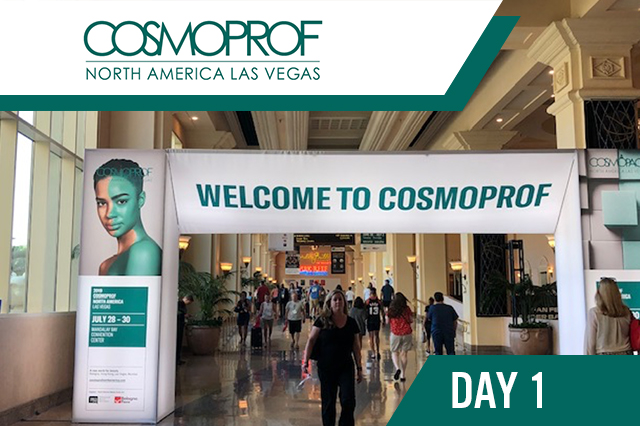
albert Chan
The Coresight Research team is in Las Vegas this week attending Cosmoprof North America 2019, the leading B2B beauty trade show in North America. The event draws over 40,000 attendees and 1,400 exhibitors from 52 countries, and incorporates a three-day education program for industry experts to share insights and information on emerging trends in beauty.
The Coresight Research team attended numerous expert sessions and connected with brand owners to uncover the newest product trends.
These are the key insights from day one:
1. Beauty with a conscience is driving innovation across all categories. BeautyStreams, a global trend and forecasting agency, worked with Cosmoprof to showcase key trends it spotted among this year’s exhibitors. Fernanda Pigatto, Global Marketing Director, Beauty Streams, described the company’s methodology and said the team met with each brand to assess the newness and innovation of the products. Laura Ziv, Executive Editor, highlighted that this year’s overarching theme, “beauty with a conscience,” which is much more than a trend and more of a core value that crosses all beauty categories. Consumers are looking for product traceability, sustainability and mindful living. Consumers are seeking zero-waste practices, ethical sourcing, and transparency in ingredients – but still want efficacy. Ziv said holistic innovations across touchpoints will differentiate brands of the future.
[caption id="attachment_93721" align="aligncenter" width="700"]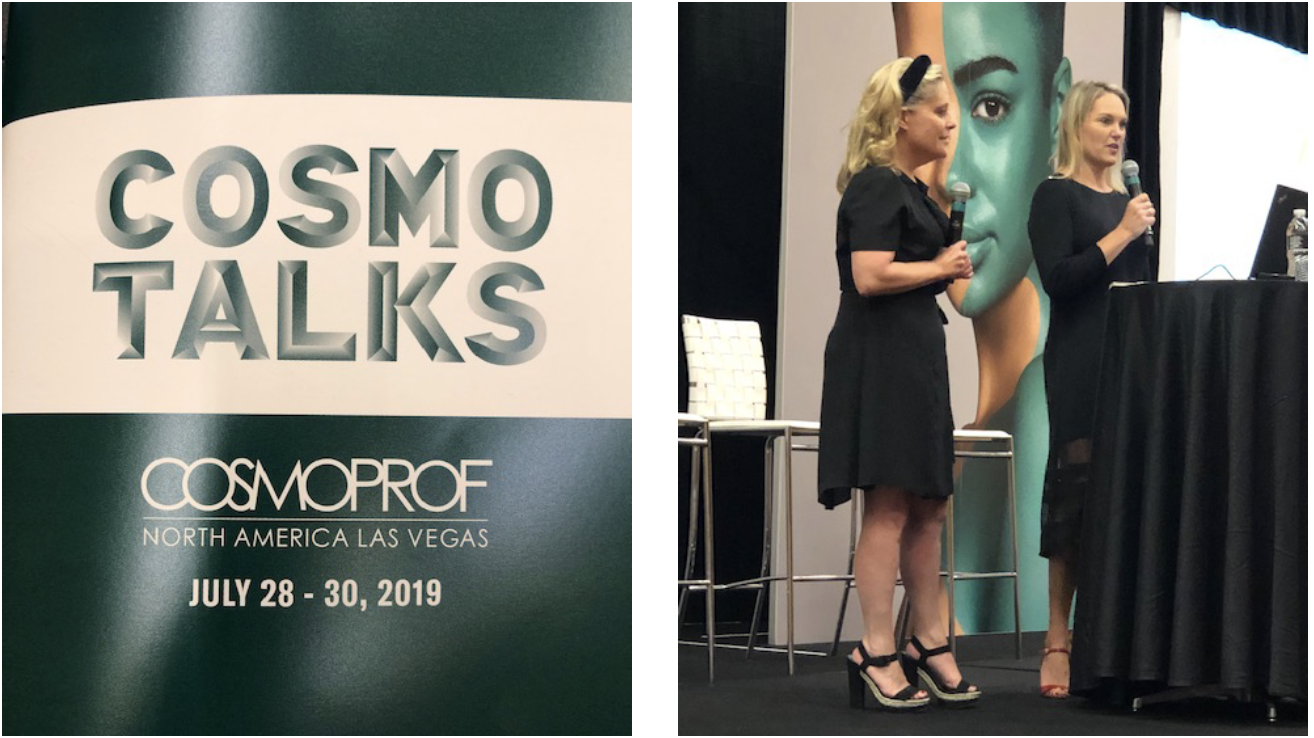 Cosmo Talk: The Cosmoprof Trends Report: Las Vegas 2019; Laura Ziv, Executive Editor, BeautyStreams; Fernanda Pigatto, Global Marketing Director, Beauty Streams
Cosmo Talk: The Cosmoprof Trends Report: Las Vegas 2019; Laura Ziv, Executive Editor, BeautyStreams; Fernanda Pigatto, Global Marketing Director, Beauty Streams
Source: Coresight Research[/caption] 2. Vegan beauty is a growing trend, driven by millennials. Over 25% of US millennials say they are vegan or vegetarian, according to the Economist, which recently predicted 2019 will be the year of the vegan. What used to be a niche beauty opportunity is growing rapidly. Vegan beauty products, which must be cruelty-free, non-toxic and made with no animal products such as lanolin, honey, beeswax or gelatin. Consumers are increasingly seeing these products as cleaner. 3. Innovation in vegan beauty products is growing as the category spans sunscreen, body gleam to drinkable collagen. As the vegan category expands, innovation and product sophistication is expanding. Consumers today want results from vegan products that are equal to or even better than mainstream products: They will not accept lower quality because certain non-vegan ingredients are “missing.” This creates challenges in some categories, such as sunscreen. One vegan sunscreen product called Love Sun Body 100% Natural Origin Mineral Sunscreen reportedly took over six years to develop to make it vegan, gluten-free, cruelty-free – and effective. The sunscreen has been certified 100% natural origin by Ecocert Greenlife, according to the Cosmos Standard, and contains no chemical filters or ingredients harmful to coral. [caption id="attachment_93722" align="aligncenter" width="500"]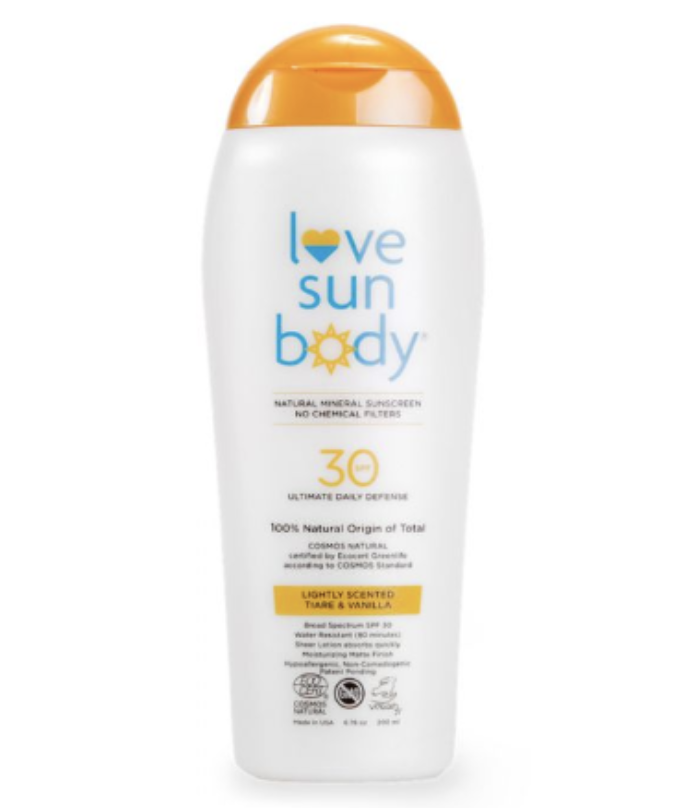 Love Sun Body 100% Natural Origin Mineral Sunscreen
Love Sun Body 100% Natural Origin Mineral Sunscreen
Source: Coresight Research[/caption] Melanie Mills created her vegan, cruelty-free, gluten-free body Gleam Face & Body Radiance multi-cultural skin product in response to customer feedback. Mills worked on Dancing with the Stars, and said cast members often requested her body glow because it does not easily transfer but also looks natural. The product uses six universal shades that melt into any skin tone. Mills calls her product “nature’s pantyhose.” [caption id="attachment_93723" align="aligncenter" width="700"]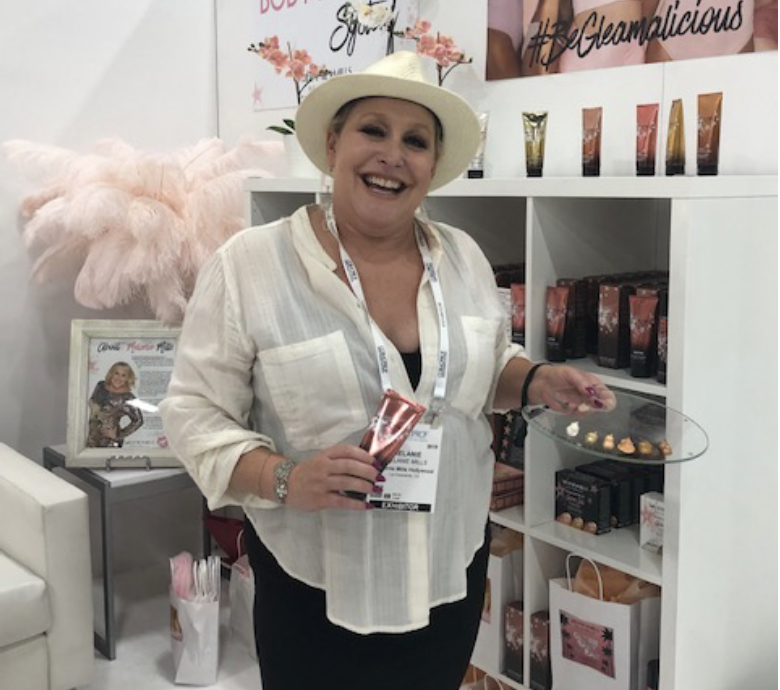 Melanie Mills, founder of Gleam Face & Body Radiance (Vegan Beauty Brand)
Melanie Mills, founder of Gleam Face & Body Radiance (Vegan Beauty Brand)
Source: Coresight Research[/caption] 4. All brands will be “clean” beauty brands in the future, but the industry needs major commercial brands to bridge the gap for consumers. Tara Foley, founder of clean beauty brand Follain, said she believes all brands are moving towards clean beauty and eventually all will embrace it. Despite the rising popularity, some products and formats still seem foreign and niche to many consumers. When Foley opened her first Follain store in Boston in 2013, she was one of the first clean beauty brands. She emphasized that commercial, mass brands in the middle will help consumers to bridge the gap into the clean space. She added that the clean beauty experience has to begin with education, and beauty brands carry a lot of weight on their shoulders because if new customers try clean or green products and it falls short, they move on. Natural beauty brands have to get it right in every regard. [caption id="attachment_93724" align="aligncenter" width="700"]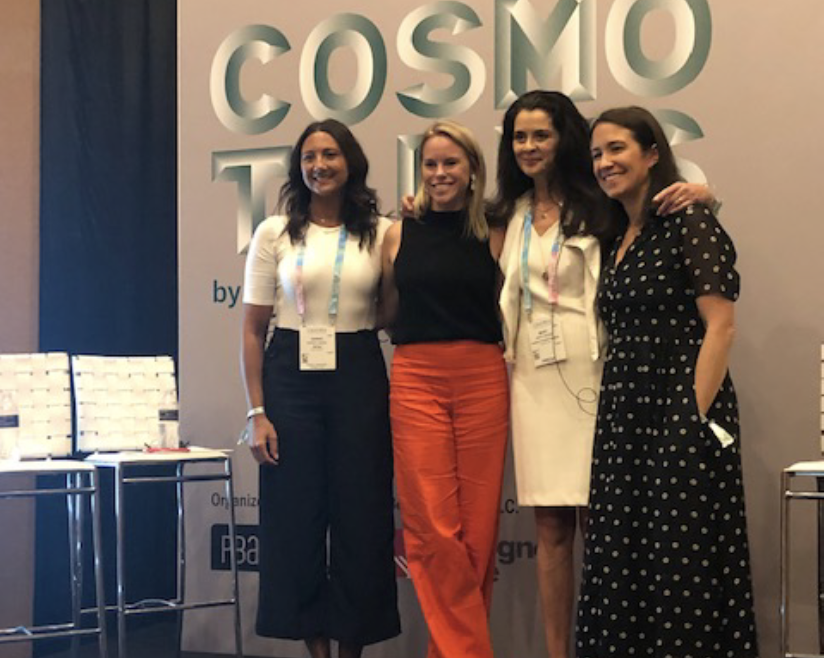 Green Beauty Brand Building in 2020: Looking Ahead. From left to right: Sarah Jindal, Senior Innovation Insights Analyst, Mintel; Kim Ryan, VP Product Sales, New World Natural Brands; Mary Bemis, Founder and Editorial Director, Insider’s Guide to Spas; Tara Foley, CEO & Founder, Follain
Green Beauty Brand Building in 2020: Looking Ahead. From left to right: Sarah Jindal, Senior Innovation Insights Analyst, Mintel; Kim Ryan, VP Product Sales, New World Natural Brands; Mary Bemis, Founder and Editorial Director, Insider’s Guide to Spas; Tara Foley, CEO & Founder, Follain
Source: Coresight Research[/caption] 5. There is white space for color cosmetic brands in vegan beauty and clean beauty. Color cosmetics are a growing area of opportunity for vegan, clean and green beauty. While much of the product innovation has revolved around skin care, innovations in color cosmetics are rare. According to Sarah Jindal, Senior Innovation & Insights Analyst at Mintel, it’s been trickier to achieve the necessary combination of veganism and efficacy in color cosmetics, mainly obtaining the rich colors consumer are used to. However, Jindal said companies are beginning to have success with new pigments and ingredient experimentation in the clean beauty category.
 Cosmo Talk: The Cosmoprof Trends Report: Las Vegas 2019; Laura Ziv, Executive Editor, BeautyStreams; Fernanda Pigatto, Global Marketing Director, Beauty Streams
Cosmo Talk: The Cosmoprof Trends Report: Las Vegas 2019; Laura Ziv, Executive Editor, BeautyStreams; Fernanda Pigatto, Global Marketing Director, Beauty StreamsSource: Coresight Research[/caption] 2. Vegan beauty is a growing trend, driven by millennials. Over 25% of US millennials say they are vegan or vegetarian, according to the Economist, which recently predicted 2019 will be the year of the vegan. What used to be a niche beauty opportunity is growing rapidly. Vegan beauty products, which must be cruelty-free, non-toxic and made with no animal products such as lanolin, honey, beeswax or gelatin. Consumers are increasingly seeing these products as cleaner. 3. Innovation in vegan beauty products is growing as the category spans sunscreen, body gleam to drinkable collagen. As the vegan category expands, innovation and product sophistication is expanding. Consumers today want results from vegan products that are equal to or even better than mainstream products: They will not accept lower quality because certain non-vegan ingredients are “missing.” This creates challenges in some categories, such as sunscreen. One vegan sunscreen product called Love Sun Body 100% Natural Origin Mineral Sunscreen reportedly took over six years to develop to make it vegan, gluten-free, cruelty-free – and effective. The sunscreen has been certified 100% natural origin by Ecocert Greenlife, according to the Cosmos Standard, and contains no chemical filters or ingredients harmful to coral. [caption id="attachment_93722" align="aligncenter" width="500"]
 Love Sun Body 100% Natural Origin Mineral Sunscreen
Love Sun Body 100% Natural Origin Mineral SunscreenSource: Coresight Research[/caption] Melanie Mills created her vegan, cruelty-free, gluten-free body Gleam Face & Body Radiance multi-cultural skin product in response to customer feedback. Mills worked on Dancing with the Stars, and said cast members often requested her body glow because it does not easily transfer but also looks natural. The product uses six universal shades that melt into any skin tone. Mills calls her product “nature’s pantyhose.” [caption id="attachment_93723" align="aligncenter" width="700"]
 Melanie Mills, founder of Gleam Face & Body Radiance (Vegan Beauty Brand)
Melanie Mills, founder of Gleam Face & Body Radiance (Vegan Beauty Brand)Source: Coresight Research[/caption] 4. All brands will be “clean” beauty brands in the future, but the industry needs major commercial brands to bridge the gap for consumers. Tara Foley, founder of clean beauty brand Follain, said she believes all brands are moving towards clean beauty and eventually all will embrace it. Despite the rising popularity, some products and formats still seem foreign and niche to many consumers. When Foley opened her first Follain store in Boston in 2013, she was one of the first clean beauty brands. She emphasized that commercial, mass brands in the middle will help consumers to bridge the gap into the clean space. She added that the clean beauty experience has to begin with education, and beauty brands carry a lot of weight on their shoulders because if new customers try clean or green products and it falls short, they move on. Natural beauty brands have to get it right in every regard. [caption id="attachment_93724" align="aligncenter" width="700"]
 Green Beauty Brand Building in 2020: Looking Ahead. From left to right: Sarah Jindal, Senior Innovation Insights Analyst, Mintel; Kim Ryan, VP Product Sales, New World Natural Brands; Mary Bemis, Founder and Editorial Director, Insider’s Guide to Spas; Tara Foley, CEO & Founder, Follain
Green Beauty Brand Building in 2020: Looking Ahead. From left to right: Sarah Jindal, Senior Innovation Insights Analyst, Mintel; Kim Ryan, VP Product Sales, New World Natural Brands; Mary Bemis, Founder and Editorial Director, Insider’s Guide to Spas; Tara Foley, CEO & Founder, FollainSource: Coresight Research[/caption] 5. There is white space for color cosmetic brands in vegan beauty and clean beauty. Color cosmetics are a growing area of opportunity for vegan, clean and green beauty. While much of the product innovation has revolved around skin care, innovations in color cosmetics are rare. According to Sarah Jindal, Senior Innovation & Insights Analyst at Mintel, it’s been trickier to achieve the necessary combination of veganism and efficacy in color cosmetics, mainly obtaining the rich colors consumer are used to. However, Jindal said companies are beginning to have success with new pigments and ingredient experimentation in the clean beauty category.